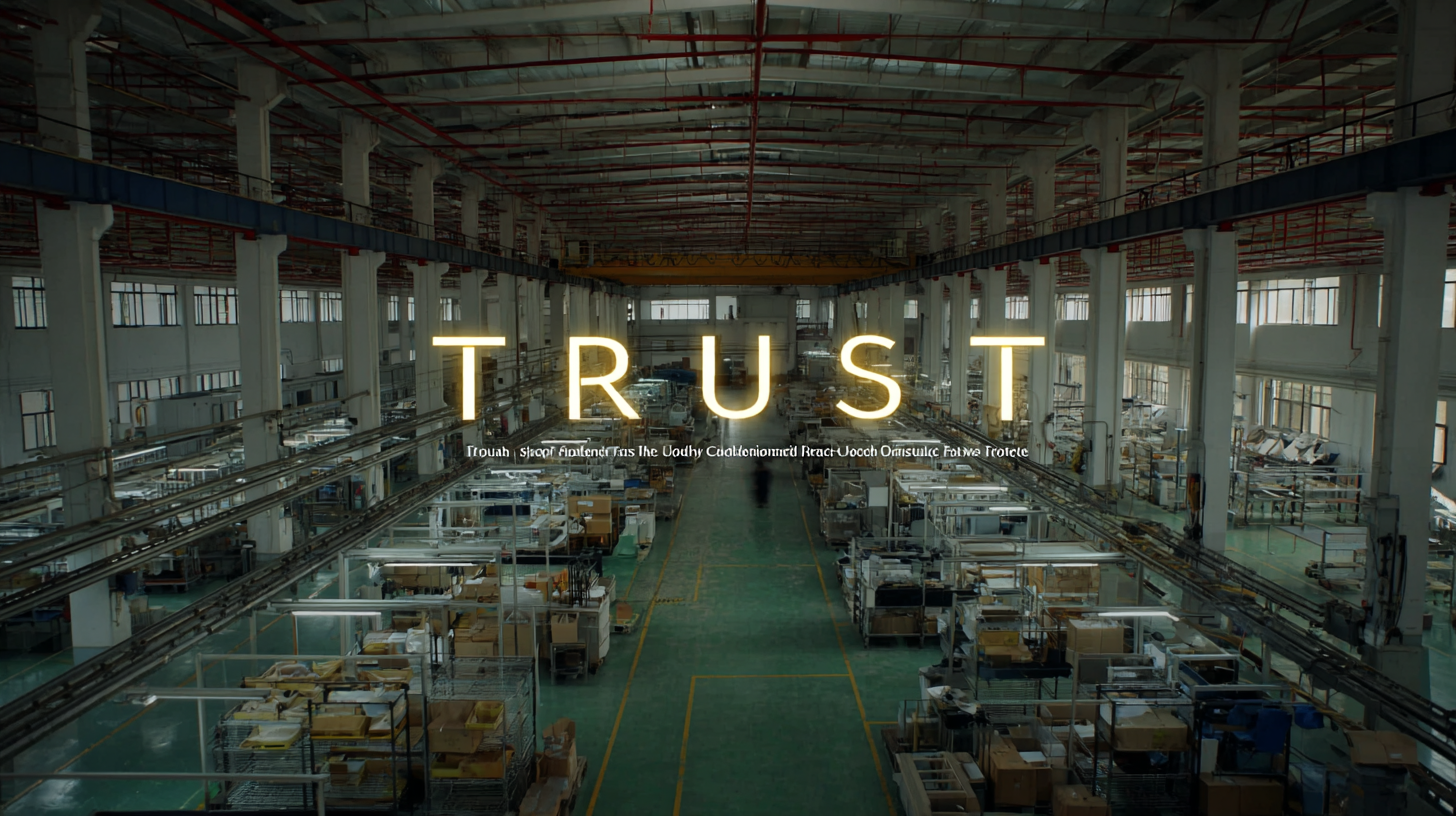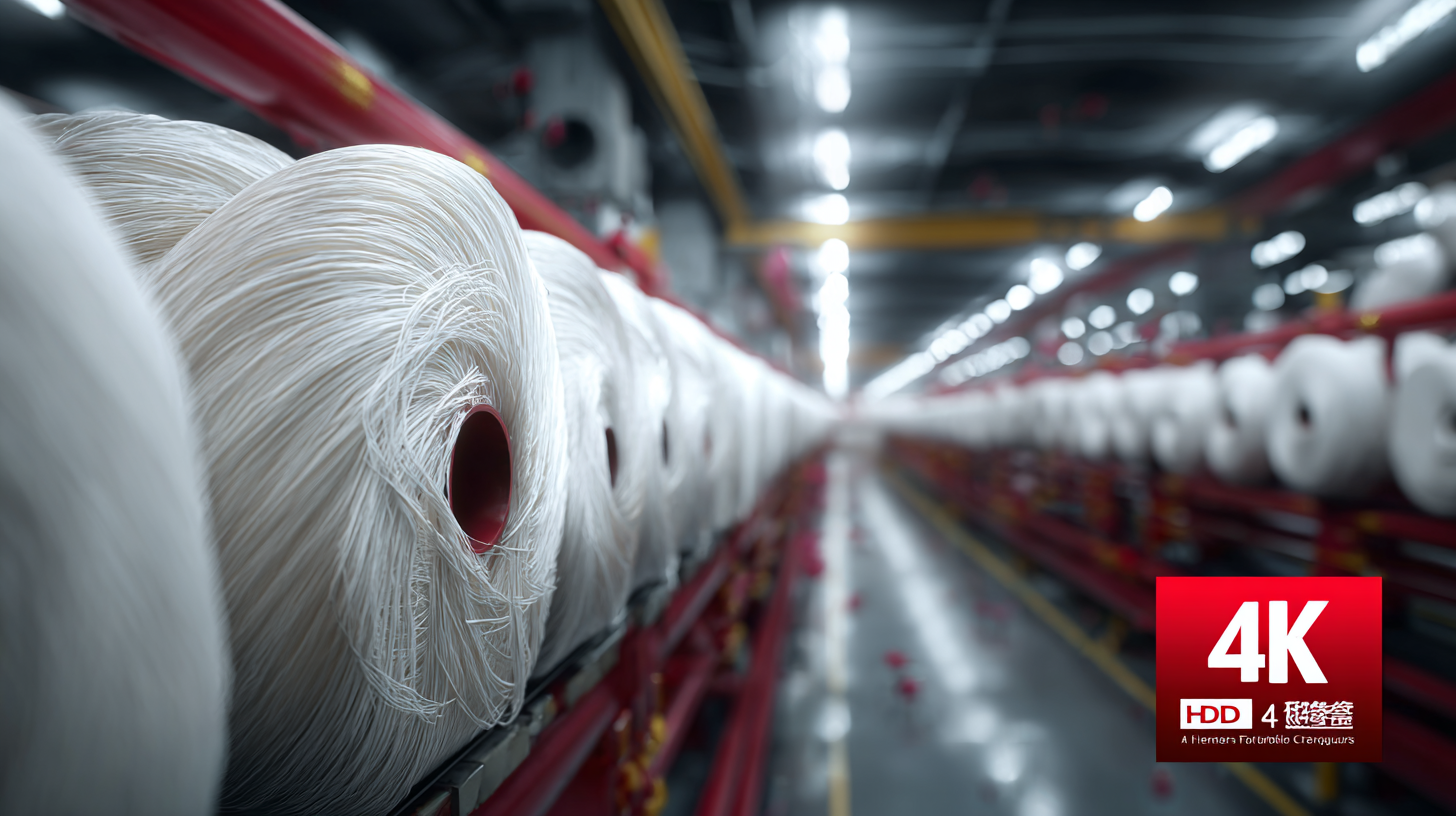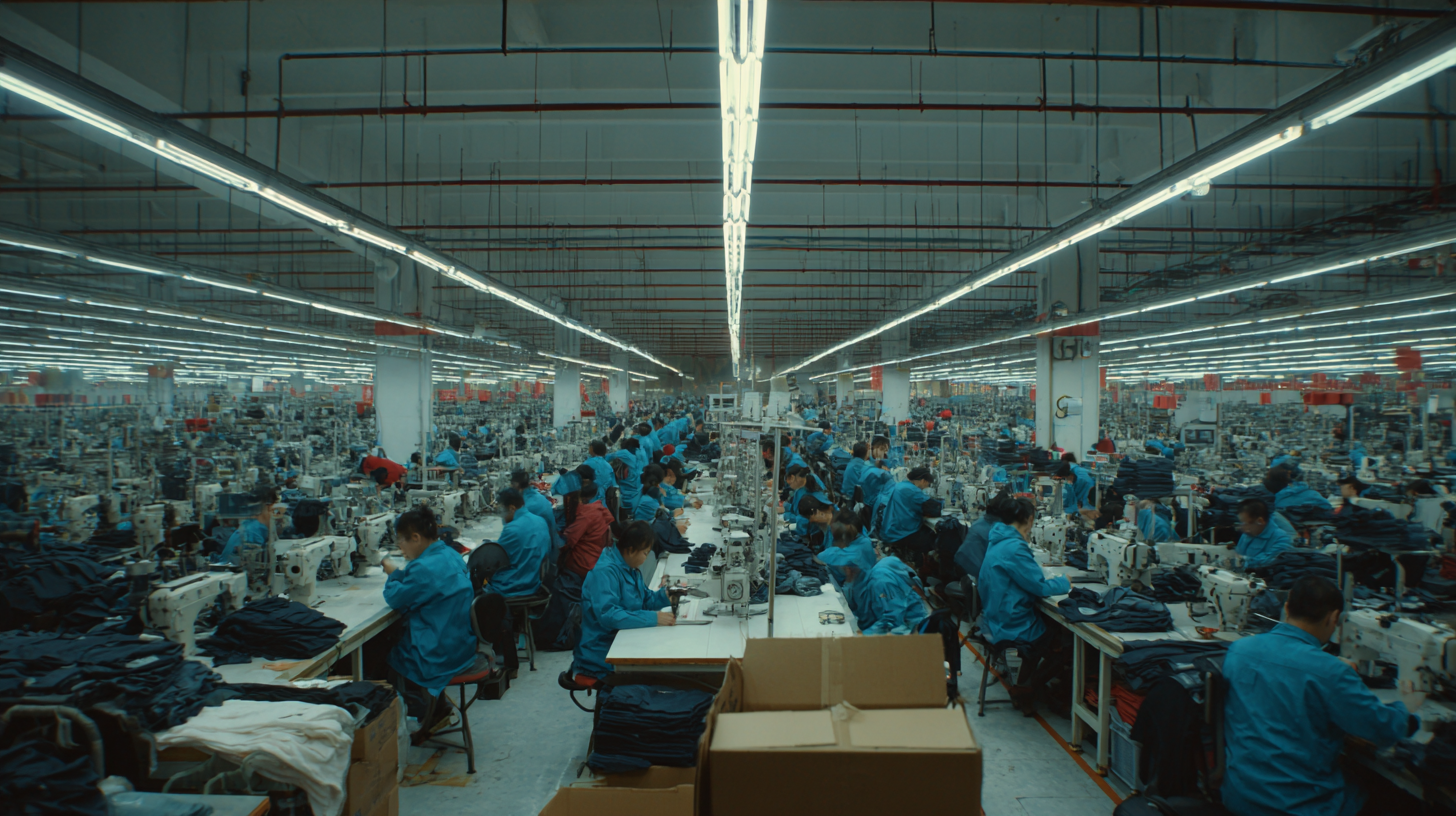

In the rapidly evolving landscape of global manufacturing, China's position as a powerhouse cannot be overstated. Recent reports indicate that the country's industrial output has reached an astonishing $4.5 trillion, accounting for nearly 30% of the world's total manufacturing output. As consumers become increasingly discerning, the demand for premium products has surged, propelling Chinese factories to focus on quality assurance and innovation. This shift is encapsulated in the mantra "中国智造,全球热销,品质保证," meaning "Chinese intelligence in manufacturing, globally popular, guaranteed quality." By leveraging advanced technologies and adhering to stringent quality standards, leading Chinese manufacturers are redefining trust in products made in China. This blog will explore how these premium offerings are boosting international market confidence and reshaping perceptions of the Chinese manufacturing industry.

In recent years, the focus on production standards in China has become paramount for industries seeking to boost trust through premium products. According to a report from the China National Institute of Standardization, nearly 70% of Chinese manufacturers have adopted internationally recognized quality management systems such as ISO 9001. This adherence to strict industry standards ensures that products not only meet domestic demand but are also competitive in global markets.

Moreover, the Chinese government has implemented initiatives like the "Made in China 2025" plan, aiming to elevate quality standards across various sectors, including electronics, machinery, and textiles. Data from the Ministry of Industry and Information Technology indicates that by 2025, the country aims for over 30% of its manufacturing output to fall under advanced manufacturing technology categories. This ambitious goal reflects a commitment to enhancing the quality and reliability of Chinese products, thereby fostering greater consumer trust and attracting international partnerships.
The push for higher industry production standards in China is not just a regulatory requirement but also a strategic move towards sustainability. A study by McKinsey & Company reveals that companies aligned with these high production standards are more likely to achieve better operational efficiency, resulting in lower waste and reduced environmental impact. As these factories embrace eco-friendly practices while adhering to stringent production standards, they inevitably contribute to building trust with consumers, who increasingly prioritize sustainable and high-quality products.
In today's competitive market, premium quality plays a pivotal role in fostering trust with consumers. When shoppers encounter products that meet and exceed expectations, they are more likely to engage with a brand repeatedly. High-quality goods signal to consumers that a company prioritizes their needs and invests in delivering exceptional value. This not only leads to immediate satisfaction but also cultivates a long-term relationship, as customers feel assured that the brand is reliable and committed to excellence.
Leading Chinese factories, known for their robust manufacturing capabilities, are increasingly recognizing the importance of producing premium products. By adhering to international quality standards and constantly innovating, these factories are transforming their reputations and, consequently, the perception of Chinese manufacturing. When consumers can depend on consistent quality, their trust solidifies, enabling brands to differentiate themselves in a crowded marketplace. This trust becomes a critical driver of loyalty, encouraging word-of-mouth recommendations that further enhance a brand's presence and consumer base.
When identifying leading Chinese factories, it is crucial to consider a combination of operational excellence, innovation capabilities, and strategic partnerships. As China continues to enhance its manufacturing prowess, firms increasingly focus on quality and technological advancements, distinguishing themselves in a competitive landscape. Emerging strategies for selecting top factories include evaluating their track record in successfully managing production processes and their ability to adapt to international quality standards. This is particularly relevant against the backdrop of ongoing discussions surrounding overcapacity and the shifting dynamics of global trade.
Additionally, the rise of alternatives like Vietnam emphasizes the need for rigorous assessments of cost-effectiveness, logistical efficiencies, and workforce proficiencies in Chinese factories. This comparative analysis helps businesses identify not just cost advantages but also the inherent strengths of factories that can deliver premium products.
Modern tools, such as social media platforms, have become vital for manufacturers to promote their capabilities directly, creating transparency and fostering trust among potential buyers. This environment pushes factories to embrace better branding and cultivate robust reputations, establishing clear differentiators in international markets.
When evaluating product quality from leading Chinese factories, international buyers must follow a systematic approach that encompasses several key factors. According to a 2022 report from McKinsey & Company, nearly 70% of global buyers highlighted that reliable quality assurance is the most crucial criterion when sourcing internationally. This reflects a growing trend among consumers who prioritize consistency and quality over price alone.
One effective method for assessing product quality is to leverage third-party certification and testing services. The China Certification and Inspection Group (CCIC) offers various services that can enhance buyer confidence in the products being sourced. Additionally, understanding the manufacturing standards, such as ISO 9001, can provide insights into a factory's commitment to quality. A study by Deloitte indicated that companies who prioritize quality control mechanisms experienced 30% fewer defects, underscoring the importance of rigorous evaluation.
Furthermore, virtual audits and on-site inspections are invaluable tools in establishing trust with suppliers. A survey by Supply Chain Dive found that 63% of buyers utilize virtual inspections as a means to ensure product integrity without incurring excessive travel costs. By employing these evaluation strategies, international buyers can mitigate risks and forge long-lasting partnerships with Chinese manufacturers, ultimately leading to enhanced product reliability and customer satisfaction.
In today's competitive market, establishing trust in products is essential for consumers and businesses alike. One effective way to build this trust is through certifications that verify the quality and safety of products manufactured in leading Chinese factories. By obtaining internationally recognized certifications such as ISO, CE, and RoHS, these factories demonstrate their commitment to maintaining high production standards. This not only assures customers of the products' reliability but also helps brands differentiate themselves in a crowded marketplace.

Furthermore, leveraging these certifications can significantly enhance the marketability of products. When consumers see credible certifications, they feel more confident in their purchasing decisions. For instance, products that meet stringent environmental and safety regulations often attract eco-conscious consumers who prioritize sustainable choices. As Chinese factories increasingly adopt these quality assurance measures, they position themselves as leaders in their industries, fostering deeper connections with global customers and enhancing their reputation for excellence.